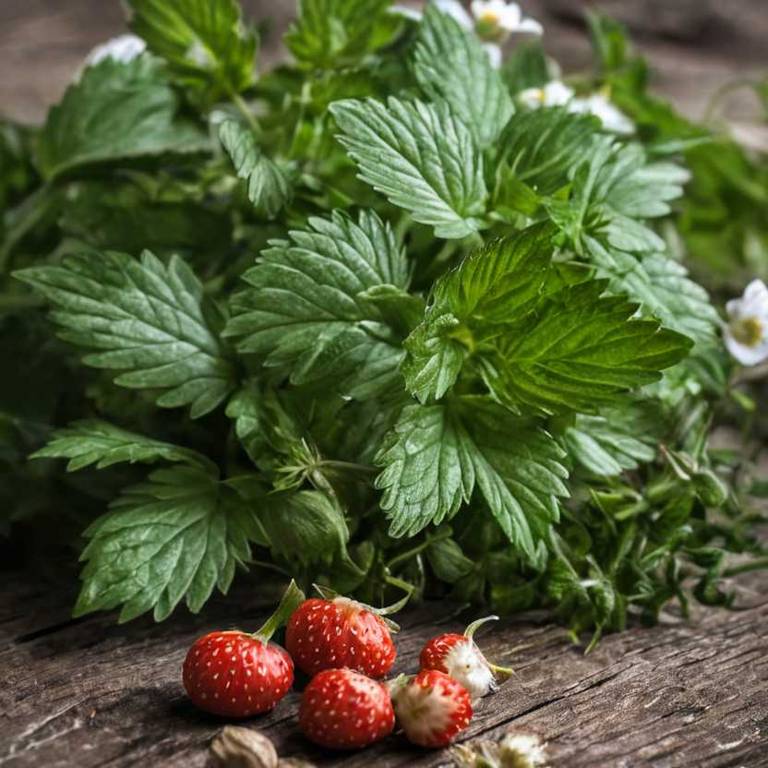Wild strawberry
Fragaria vesca
Ashwagandha is a prominent medicinal herb in Ayurvedic medicine, classified as a rasayana (rejuvenator). It is primarily utilized as an adaptogen to help the body manage physical and chemical stress.
Family
Solanaceae (Nightshade)
Native Region
India, Middle East, Africa
Part Used
Root, Leaf, Berry

Botanical Identification
Wild Strawberry (Fragaria vesca) is a species of the Rosaceae family. Commonly known as woodland strawberry, it is a perennial herb native to temperate regions of Europe, Asia, and North Africa. It has a fibrous root system, trifoliate leaves, and white flowers with five petals. Synonyms include "Eurasian strawberry" and "forest strawberry" in herbal texts.
Active Compounds
Wild Strawberry contains key bioactive compounds such as flavonoids, phenolic acids, and tannins. These compounds work synergistically to provide antioxidant and anti-inflammatory effects. Their combined action supports the herb's traditional use in herbal medicine.
- Flavonoid
- Phenolic acid
- Tannin
Therapeutic Indications
| System | Condidtion | Action |
|---|---|---|
| Immune | Inflammation, allergic reactions, allergies | Anti-inflammatory, antihistaminic |
| Integumentary | Skin irritation, wound healing, skin aging, skin inflammation, inflammatory skin conditions | Antimicrobial, antioxidant, anti-inflammatory |
| Digestive | Digestive upset, gastrointestinal discomfort, digestive discomfort, diarrhea, digestive disorders | Antispasmodic, antimicrobial, laxative, anti-inflammatory |
Preparation Methods
Infusion: Used for digestive issues and respiratory ailments.
Decoction: Used for gastrointestinal issues and as a general tonic.
Powder: Used for digestive disorders and as a general tonic.
Safety Profile
Wild Strawberry (Fragaria vesca) is generally safe when used in culinary or moderate medicinal amounts. However, it may cause allergic reactions in some individuals. It is contraindicated during pregnancy and breastfeeding due to limited safety data. Always consult a healthcare provider before use.